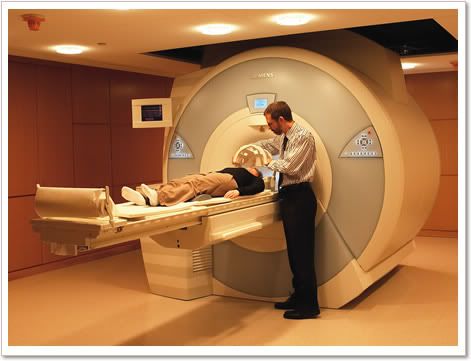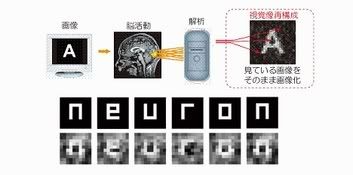EDIT: It's here now too!
I'm About To Blow Your Mind
Tell me if this hasn't happened to you. You're sitting in the video production room after Shaw has given you your latest video assignment pondering what your video will be about. Suddenly, the idea comes to you, every detail falls into place, you can picture each scene and frame of the video as if you'd already made it. It's complex sure, and will probably be difficult, but your image of it is perfect.
So you go ahead and shoot the video, trying to stay faithful to your vision. It doesn't come out just how you pictured due to the variables you have to deal with when filming. Tech problems, talent problems, time constraints, etc. This is to be expected, after all, how can people follow your vision if they can't see it?
 What if I told you that you could simply download the images you see in your brain and extrapolate the film straight from that? Put your vision up on a monitor so your cast and crew understands exactly what you want.
What if I told you that you could simply download the images you see in your brain and extrapolate the film straight from that? Put your vision up on a monitor so your cast and crew understands exactly what you want.

It may sound like science fiction, but the idea is really only one step removed from current tech. I was reading an article in the February edition of Popular Science entitled "The Mind Readers" (article not available online yet) and I learned of a new application of fMRI (functional magnetic resonance imaging)machines. You know, the donuts that scan your brain? New research has discovered how to use the brain scans to reconstruct what the subject was viewing at the time of the scan. Lets say you were shown a picture of a building like this one.
While you are staring at the picture the fMRI is scanning your visual cortex for the signals your neurons are firing off in response to the image. Then the information is run through a complex algorithm. Once the algorithm is complete, the researchers can display the image you were looking at simply from the scans of your mind. The finer details of the image are lost, but you can more or less make out what is going on.
The building shown here is just a representation I created as it is very difficult to find real examples online, though according to the article such examples do exist. The only image I could find was this one, which reconstructed the word "neuron"
It isn't high quality, but for being plucked directly from your mind, it's pretty damn good. Now what does all this have to do with video production you ask? Well, aside from the fact that they can also pluck video from your brain, I got to thinking about the possible future applications.
What if it could work in reverse? What if that perfect film you have in your mind could be scanned by an MRI and extrapolated into the video? If that day comes then anyone with an imagination could make a film. It would come out exactly how you wanted it.
Now I'm going to be realistic and assume that we won't ever be able to pluck hi-def video from our minds. But at the very least this could be used for storyboarding. You could show people exactly what you wanted the shot to look like in low-res. Using this technique could improve the quality of films because everyone, not just the director, could see that burning idea.
All you gotta do is just read his/her mind.
So you go ahead and shoot the video, trying to stay faithful to your vision. It doesn't come out just how you pictured due to the variables you have to deal with when filming. Tech problems, talent problems, time constraints, etc. This is to be expected, after all, how can people follow your vision if they can't see it?
 What if I told you that you could simply download the images you see in your brain and extrapolate the film straight from that? Put your vision up on a monitor so your cast and crew understands exactly what you want.
What if I told you that you could simply download the images you see in your brain and extrapolate the film straight from that? Put your vision up on a monitor so your cast and crew understands exactly what you want.
It may sound like science fiction, but the idea is really only one step removed from current tech. I was reading an article in the February edition of Popular Science entitled "The Mind Readers" (article not available online yet) and I learned of a new application of fMRI (functional magnetic resonance imaging)machines. You know, the donuts that scan your brain? New research has discovered how to use the brain scans to reconstruct what the subject was viewing at the time of the scan. Lets say you were shown a picture of a building like this one.
While you are staring at the picture the fMRI is scanning your visual cortex for the signals your neurons are firing off in response to the image. Then the information is run through a complex algorithm. Once the algorithm is complete, the researchers can display the image you were looking at simply from the scans of your mind. The finer details of the image are lost, but you can more or less make out what is going on.
The building shown here is just a representation I created as it is very difficult to find real examples online, though according to the article such examples do exist. The only image I could find was this one, which reconstructed the word "neuron"
It isn't high quality, but for being plucked directly from your mind, it's pretty damn good. Now what does all this have to do with video production you ask? Well, aside from the fact that they can also pluck video from your brain, I got to thinking about the possible future applications.
What if it could work in reverse? What if that perfect film you have in your mind could be scanned by an MRI and extrapolated into the video? If that day comes then anyone with an imagination could make a film. It would come out exactly how you wanted it.
Now I'm going to be realistic and assume that we won't ever be able to pluck hi-def video from our minds. But at the very least this could be used for storyboarding. You could show people exactly what you wanted the shot to look like in low-res. Using this technique could improve the quality of films because everyone, not just the director, could see that burning idea.
All you gotta do is just read his/her mind.



No comments:
Post a Comment